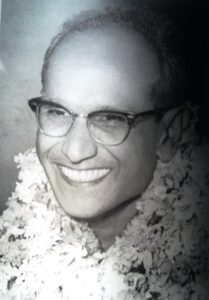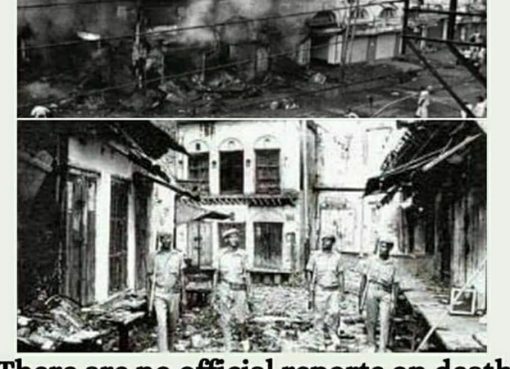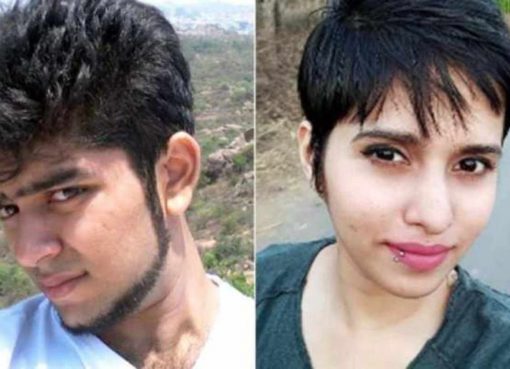Batukeshwar Dutt, an unsung hero of India’s freedom struggle, embodied the fervor and determination of countless revolutionaries who fought relentlessly against British colonial rule. Dutt’s life, though marked by tragic personal sacrifice and immense courage, remains a testimony to the selfless spirit of India’s struggle for independence. Known primarily for his role in the 1929 Central Legislative Assembly bombing, Dutt’s contribution to the revolutionary movement went beyond just an act of defiance. His unwavering commitment to India’s freedom and the sacrifices he made left a lasting imprint on the history of India’s independence.
Early Life and Education
Batukeshwar Dutt was born on 18 November 1910 in Oari village under Khandaghosh police station in the Bardhaman district of Bengal (present-day Purba Bardhaman). He came from a modest background, and his early years were spent in the small village with little indication of the larger political movements that would shape his future. His education was mostly in Bengali, and he had a keen interest in learning. As a young man, he was drawn to the ideals of patriotism and nationalism, particularly inspired by the rising tide of anti-British sentiment in India during the 1920s.
In his youth, he became a member of the revolutionary group known as the Anushilan Samiti, a secret society that advocated for armed resistance against British colonial rulers. It was within this organization that Dutt would begin to take part in various activities aimed at disrupting the British establishment, seeing violence as a necessary means to achieve India’s freedom.
The Revolutionaries’ Path
Batukeshwar Dutt’s political ideologies were shaped by revolutionary leaders such as Subhas Chandra Bose and Bhagat Singh, whose fearless activism inspired him to take more decisive actions. Dutt, along with many of his contemporaries, believed that the British government would never grant India its independence through peaceful negotiation. They believed that only through militant resistance could India hope to achieve self-rule.
The early 1920s saw the birth of the Hindustan Socialist Republican Association (HSRA), a group committed to the use of armed struggle for India’s freedom. The HSRA was particularly radical in its approach, with leaders like Bhagat Singh advocating for bombings and assassinations as part of the revolutionary struggle. Dutt soon became closely involved with this group, sharing their vision of overthrowing British rule.
The 1929 Central Assembly Bombing
The most notable event in Batukeshwar Dutt’s life came on April 8, 1929, when he, alongside Bhagat Singh, threw bombs in the Central Legislative Assembly in Delhi. Their intention was not to kill, but to protest against repressive laws and to create a dramatic impact that would awaken the nation to the need for resistance.
On the day of the bombing, Dutt and Bhagat Singh carried bombs in a briefcase and entered the Assembly. As the House was in session, they threw the bombs on the floor of the Assembly hall, deliberately aiming to cause a loud noise and chaos without injuring anyone. Dutt and Singh did not attempt to flee after the bombing, instead allowing themselves to be arrested by the police. Their actions were aimed at making the British authorities realize the anger of the Indian people and at sparking widespread awareness and revolt against colonial rule.
The incident immediately captured the imagination of the Indian masses. Dutt and Singh became symbols of resistance, their courage and defiance immortalized in the struggle for independence. They were arrested, and despite the severity of the charges, they maintained their composure and bravado throughout the trial. The message of the bombing was clear: India would no longer tolerate British oppression, and the revolutionary youth were willing to lay down their lives for the cause of freedom.
Imprisonment and Suffering
Batukeshwar Dutt’s bravery came at a great personal cost. After their arrest, he was sentenced to life imprisonment, and was sent to the infamous Cellular Jail in Andaman and Nicobar Islands. The prison conditions were extremely harsh, with prisoners subjected to inhumane treatment, forced labor, and isolation. Despite these hardships, Dutt remained steadfast in his resolve. He continued to draw inspiration from the idea of India’s freedom, keeping the revolutionary flame alive even in the most trying circumstances.
During his time in prison, Batukeshwar Dutt faced immense physical suffering. His health deteriorated rapidly, exacerbated by the severe conditions and lack of proper medical care. Despite his personal suffering, he remained a symbol of unshakable willpower, refusing to abandon his revolutionary ideals. Even when granted an opportunity to appeal for clemency, Dutt remained resolute in his mission, never once regretting his decision to fight for the country’s independence.
Release and Later Life
 In 1938, after spending over a decade in jail, Batukeshwar Dutt was finally released due to the intervention of the Indian National Congress, which sought to strengthen negotiations with the British. However, his release did not mark the end of his struggle or the sacrifices he had to make. The post-release period was a time of personal disillusionment for Dutt, as the political situation in India evolved and new political leaders came to the fore.
In 1938, after spending over a decade in jail, Batukeshwar Dutt was finally released due to the intervention of the Indian National Congress, which sought to strengthen negotiations with the British. However, his release did not mark the end of his struggle or the sacrifices he had to make. The post-release period was a time of personal disillusionment for Dutt, as the political situation in India evolved and new political leaders came to the fore.
Despite his disillusionment, Batukeshwar Dutt continued to work for the cause of India’s independence in whatever capacity he could. His revolutionary zeal did not die, but his life became increasingly difficult as he struggled with poverty and illness. The lack of recognition for his sacrifices, especially compared to other prominent revolutionaries, was a constant source of bitterness for Dutt. He remained largely out of the public eye, and his contributions were largely forgotten after India gained independence in 1947.
Legacy and Death
Batukeshwar Dutt passed away on July 20, 1965, in relative obscurity, and his death went largely unnoticed in the mainstream media. His sacrifices, however, remained etched in the memory of those who were aware of his extraordinary contributions. While figures like Bhagat Singh garnered more attention, Dutt’s role in the revolutionary movement was equally significant. He, along with his comrades, represented the spirit of defiance and sacrifice that ultimately led to India’s freedom.
In recent years, efforts have been made to recognize and honor the sacrifices of Batukeshwar Dutt. His courage, determination, and unwavering commitment to the cause of India’s freedom are qualities that continue to inspire generations of Indians.

শ্রী অনিমিত্র চক্রবর্তী হলেন একজন সাংবাদিক ও বিভাগীয় লেখক (columnist) এবং বেঙ্গল ভলান্টিয়ার্সের এক সক্রিয় কর্মী।





